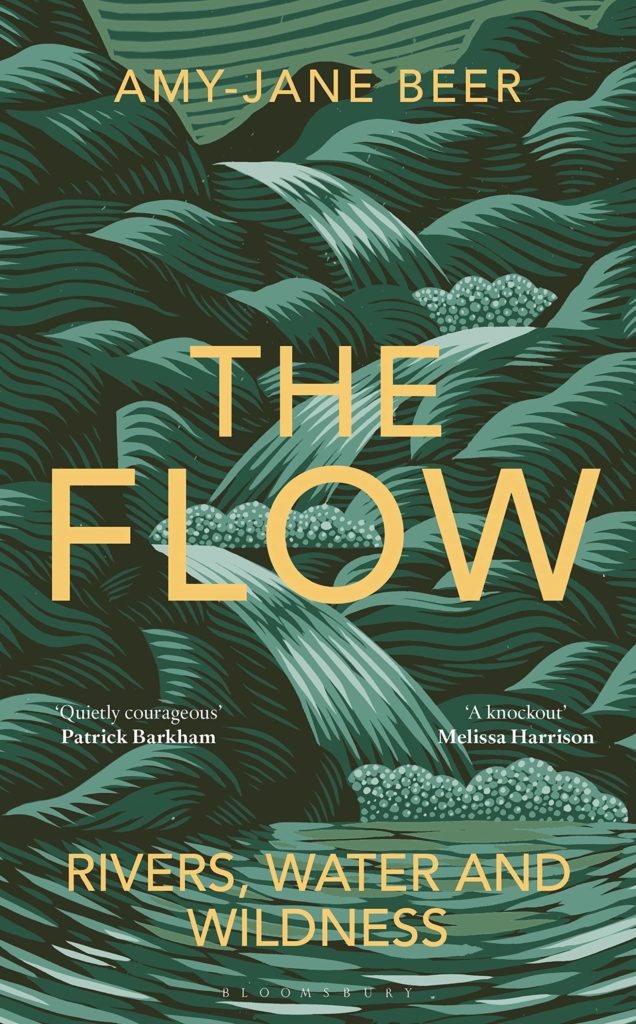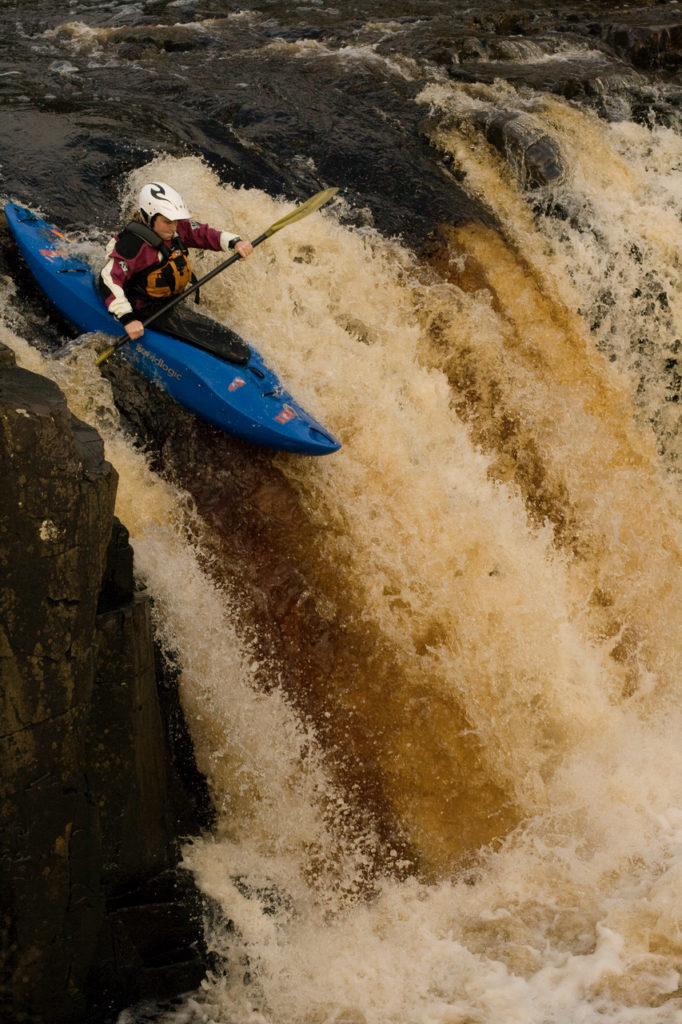Ceri Levy dips into Amy-Jane Beer’s latest book ‘The Flow: Rivers, Water and Wildness’, finding a call for everyone to rediscover their river, and to re-join it with love.

For years Amy-Jane Beer rose to the challenge of water. Kayaking down rivers, challenging her white-water paddling skills and honing them. The danger, the adrenaline, the thrill of combatting the elemental forces of rivers. Narrow escapes, accidents, learning what went wrong and understanding what went right. Always aware of the presence and the power of water. Friendly one minute, relentless the next, the change in a river’s attitude and flow can happen in a fraction of time. This was the wildness of water. Never tame and always demanding respect. But always rivers had let Amy and her friends leave, some days bruised, some days elated or sometimes both. Until one day that all changed…
On New Year’s Day 2012, Amy-Jane’s close friend Kate tragically lost her life while kayaking the river Rawthey with friends in the Howgill Fells, situated in the Yorkshire Dales National Park. This bereavement impacted Amy in a devastating way and the rivers that had been so engaging and time-consuming receded from her life and she moved on in other directions.
She had always meant to visit the heart-breaking site, but time and life got in the way until one day some years later, when finding herself in the area of the accident, she made a spur of the moment decision to finally visit the location. This proved to be a transformative event and rivers began to draw her back into their current, rekindling her passion and curiosity for them.
The Flow is a series of contemplative explorations of waterways up and down the country, taking in place and people along the way, sometimes by chance and sometimes planned. The author shows how rivers inspire us, their importance to our well-being and how these arteries connect us with land, science, history, stories and each other. We need water for a multitude of reasons and our dependence on it has been taught and learnt since time immemorial.
Hydolatry, or the idea of water as sacred, is ubiquitous in world religions, featuring in rituals of immersion, libation, communion, celebration, promise, thanksgiving, healing, pilgrimage and purification as well as funerary farewells: we dip, pour, sip, raise a toast, deposit offerings, bathe, dose, follow, wash, and commit to water from the beginning of life to the end. The idea that we come from water was intuited long before it was understood in any evolutionary sense. We all emerge from a small, warm, private sea at the beginning of our lives, a sea that substitutes physiologically and phylogenetically for the water in which life on Earth originally began.

The book meanders like a river — almost aimless at times, except no river is ever aimless, and so it is with The Flow. We always end up somewhere. This is part of the magic of the book as we have no idea who or what will appear next. The journey discovers beautiful truths even though the author may not have been initially searching for them. Being a proud Welshman, one of my favourite encounters is with musician, Owen Shiers, in West Wales. On meeting him, Amy discovers Owen has spent three years seeking out folk songs from as close to his locale of the Clettwr Valley as possible. He discovered a treasure trove of lost or forgotten works, many of them centuries old, which have most likely never been heard in the modern world. As he says, “I wanted to restore them to life.” So he recorded a selection of the songs, creating the mesmerically beautiful album Dilyn Afon, under his musical guise of Cynefin. But Owen is aware that it’s not just music that is being lost, “We are experiencing an epidemic of cultural amnesia. Many holders of disappearing knowledge don’t realise what they have. For example, there’s this old farmer who’s the only one I know still growing Welsh black oats and possibly the only one still practising the old method of tying an oat stook.” It’s a reminder to keep our cultural heritage alive before we lose too much of it forever.
Modern living has taken its toll on our rivers, which have become less cared for than they should be. There is what some call ‘a disconnect from nature’ but as Andy Goldsworthy, the landscape artist wrote:
We often forget that WE ARE NATURE. Nature is not something separate from us. So, when we say that we have lost our connection to nature, we’ve lost our connection to ourselves.
We are landscape, we are mountains, we are fields…we are rivers. And Amy points out this absolute truth to us with her own self-reconnection after so long apart from an environment she loved and thrived within.
The Flow is a call to action. A call for us to repair the damage caused by humans, to fight for the health of our waterways or demand the simple right to wander along a riverbank. Rivers should be a destination for everyone, but if we can’t spend time to engage with them, how do we learn how to help them? After all, over 90% of the UK is closed to the public. Is it any wonder that by being kept apart from so much of the natural world we neglect the work that needs to be done? Most people simply don’t know what’s going on. The Flow discusses these monumental injustices and supports Right to Roam who campaign for more access to more land for more people across the nation.
Now more than ever, we need to feel the succour the environment gives us. But we must return to a healthy symbiotic relationship with it. The Flow documents the author’s return to the rivers and sets the reader on a path that may be one of its great purposes. To rediscover your river and re-join it with love.
*
‘The Flow’, published by Bloomsbury Wildlife, is out now.
More information about Right to Roam can be found here.